Co-Convenors
Gretta Pecl
Institute for Marine and Antarctic Studies (IMAS), UTAS, Tasmania, Australia
Institute for Marine and Antarctic Studies (IMAS), UTAS, Tasmania, Australia

Gretta is an ARC Future Fellow, a previous Fulbright Fellow, and the Deputy Associate Dean of Research at the Institute for Marine and Antarctic Studies. She is also the current Editor in Chief of the prestigious Reviews in Fish Biology and Fisheries journal and a co-convenor of the Global Marine Hotspots Network. Her recent research activity spans a wide range of topics from theoretical to applied ecology, including assessment of species range shifts, population and fishery responses to climate change, development and evaluation of adaptation options to respond to climate change, and on using citizen science approaches for ecological monitoring and engagement (e.g. www.REDMAP.org.au). Gretta leads several large National and regional marine climate change projects at IMAS and has a strong commitment to science communication with the public and industry.
www.imas.utas.edu.au/people/profiles/current-staff/p/Gretta-Pecl
Stephen Williams
Centre for Tropical Biodiversity & Climate Change, JCU, Australia
Centre for Tropical Biodiversity & Climate Change, JCU, Australia

Stephen (Steve) Williams is a Professor in the College of Marine and Environmental Science, James Cook University. His research is focused on understanding biodiversity, assessing the resilience of natural ecosystems to environmental change and using this knowledge to maximize the positive benefits of conservation management and adaptation. He was an author of the Australian National Adaptation Research Plan and the Director of the National NCCARF Adaptation Research Network for terrestrial biodiversity. He has over 100 publications and, with more than 10000 peer review citations, he is one of the most-cited global change biologists globally. Currently, Steve is also the Chair of the IUCN Climate Change & Biodiversity Specialist Group and the Wet Tropics Management Science Advisory Committee. In 2006 he started the Centre for Tropical Biodiversity and Climate Change (CTBCC) and was the inaugural Director for the first six years. His research has focussed on Australian tropical rainforest, however he now has a strong emphasis on establishing a global tropical research and monitoring network. His aim is to help foster international collaboration and information exchange in order to provide the resources needed by natural resource managers around the world to adapt to a changing climate.
Organising Committee
John Pandolfi
University of Queensland, Brisbane, Queensland
University of Queensland, Brisbane, Queensland

John Pandolfi is Professor at the Centre for Marine Science and the School of Biological Sciences, University of Queensland and a chief investigator of the Australian Research Counciil’s Centre of Excellence in Coral Reef Studies. His research focusses on coral reef ecosystems to shed light on a number of fundamental ecological questions where long-term data are essential. He has broad research interests in marine palaeoecology, with emphasis on the effects of anthropogenic impacts and climate change on the recent past history and future fate of modern coral reefs.
Alistair Hobday
CSIRO Oceans and Atmosphere, Hobart, Tasmania
CSIRO Oceans and Atmosphere, Hobart, Tasmania
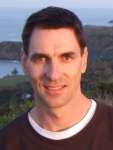
Alistair Hobday leads CSIRO’s Marine Climate Impacts and Adaptation research, is co-chair of the international CLIOTOP (Climate Impacts on Top Ocean Predators) program, and contributed to the IPCC 4th and 5th assessment Australasia chapters, covering fisheries, oceanic and coastal systems. Much of his current research focuses on investigating the impacts of climate change on marine biodiversity and resources, and developing, prioritising and testing adaptation options to underpin sustainable use and conservation into the future.
Lucy Robinson
Commission for the Conservation of Antarctic Marine Living Resources, Hobart, Tasmania
Commission for the Conservation of Antarctic Marine Living Resources, Hobart, Tasmania
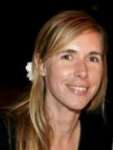
Lucy’s broad research interests lie in theoretical, empirical and applied spatial ecology, and how to generate robust results to inform resource and conservation management plans and decisions. Understanding and predicting the current geographic distributions of marine species, and how species distributions may change in relation to impacts such as climate change, have been focal points in her recent research projects.
Brett Scheffers
Department of Wildlife Ecology and Conservation, University of Florida
Department of Wildlife Ecology and Conservation, University of Florida
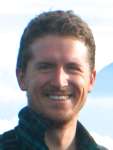
Brett Scheffers is a conservation ecologist with interests in drivers of biological organization in space and time and the effects of human disturbance on these processes. His research is diverse and global in scope, encompassing multiple taxonomic groups across boreal, temperate and tropical ecosystems. Brett’s recent research foci include multidimensional species distributions in rainforest canopy environments, ecophysiology of ectotherms, and microhabitat buffering of extreme climate events. Brett’s research converges under a single theme – assessing species and habitat vulnerability and resilience under novel climates and disturbances. Brett is a post-doctoral associate for the IUCN Climate Change and Biodiversity Specialist Group and a research associate at the Field Museum in Chicago, USA.
Stewart Frusher
Institute for Marine and Antarctic Studies, UTAS, Hobart, Tasmania
Institute for Marine and Antarctic Studies, UTAS, Hobart, Tasmania
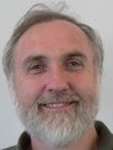
Stewart is the Climate Change Cross-Discipline Theme Leader at IMAS at the University of Tasmania. He has expertise in leading large inter-disciplinary projects including the recently completed Australian Department of Climate Change’s National Coastal Vulnerability case study (http://www.climatechange.gov.au/publications/coastline/east-coast-rock-lobster.aspx). He has over 30 years’ experience in marine science and over 50 international publications.
www.imas.utas.edu.au/people/profiles/current-staff/f/Stewart-Frusher
Steering Committee
I-Ching Chen
Department of Life Sciences, National Cheng-Kung University, Taiwan
Department of Life Sciences, National Cheng-Kung University, Taiwan

I-Ching’s work focuses on different aspects of biological responses to climate changes and habitat degradation, including species range shifts, the association with biological traits, and consequences of community reshuffling. Particularly, she concentrates on bird and butterfly species in the tropical mountains, where species may have adapted to the stable and cloudy environments but the ecosystems are vulnerable to a change in climate variability and diverse human activities.
Cascade Sorte
Department of Ecology & Evolutionary Biology, University of California – Irvine, USA
Department of Ecology & Evolutionary Biology, University of California – Irvine, USA

Cascade Sorte is an Assistant Professor at the University of California (UC)-Irvine, having completed a Master’s degree at UC-Santa Barbara and a Ph.D. at UC-Davis. In her research, Dr. Sorte takes an integrative approach – spanning studies of organismal physiology to biogeography – to examining the mechanisms of responses to global change. Specific research foci include (1) the ecophysiological underpinnings of species’ distributions, (2) the impacts of climate-driven shifts in these distributions, (3) the interactions between climate change and species invasions, and (4) ways that species can “cope” with climate change (e.g. via acclimation, adaptation, and re-distribution).
Miguel B. Araujo
Imperial College London, UK & National Museum of Natural Sciences, CSIC, Spain
Imperial College London, UK & National Museum of Natural Sciences, CSIC, Spain
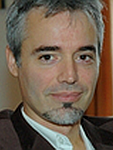
Miguel Araujo is Professor in Integrative Biogeography at the Imperial College London, whilst keeping a joint appointment at the National Museum of Natural Sciences (CSIC) in Madrid. He holds temporary academic visiting appointments at the Universities of Evora and Copenhagen, and serves as Editor-in-Chief of Ecography. Over the years he has developed a wide range of interests in biogeography, conservation planning, global change biology, and macroecology. According to Thomson Reuters (2014), Miguel Araujo is a highly cited scientist. His work has been recognized with a Royal Society Wolfson Research Merit Award(2013), the IBS (International Biogeography Society) MacArthur & Wilson Award (2013), and the GIBIF (Global Information Biodiversity Facility) 2013 Ebbe Nielsen Prize.
Erik Wapstra
School of Biological Sciences, University of Tasmania, Australia
School of Biological Sciences, University of Tasmania, Australia
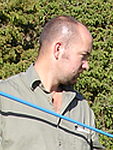
Erik Wapstra is an Australian Research Council Future Fellow. His current projects on climate change revolve around bridging the gap between environmental induced phenotypic change, population dynamics, and long-term evolution.
Erik’s interests began with thermal ecology of reptiles and now encompass the use of multiple modelling techniques to address species responses and interactions and distributions. Over the last 10 years his focus has been on the use of long term datasets (often matched with laboratory experimental approaches) to understand often under-appreciated effects to species phenotypic and evolutionary responses.
Anthony Dell
National Great Rivers Research and Education Center, NGRREC, USA
National Great Rivers Research and Education Center, NGRREC, USA
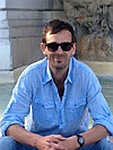
Anthony Dell is a research ecologist trying to understand the biological mechanisms that determine the strength and outcome of species interactions, and the role of the physical environment. He approaches this problem from a bottom-up, physiological perspective, using field and laboratory experiments, meta-analysis of published literature, and mechanistic theory. He is growing increasingly concerned about the health of the biosphere, and so is also interested in understanding how humans are altering natural ecosystems, with the goal of informing policy about future projections and appropriate methods for mitigating effects. Being based on the banks of the Mississippi River, at the National Great Rivers Research and Education Center (NGRREC) in Illinois, provides him with a unique opportunity to understand these issues in the context of large river systems.
Casandra De Young
Department of Fisheries & Aquaculture, United Nations Food and Agriculture Organization, Italy
Department of Fisheries & Aquaculture, United Nations Food and Agriculture Organization, Italy

Cassandra De Young is an environmental and natural resource economist, with a particular interest in promoting discussions on the social and economic contributions of the aquatic systems as part of integrated management efforts. Most of her 12-year tenure at the FAO has related to the development of fisheries management plans and strategies and supporting the ecosystem approach to fisheries. Understanding human choices and drivers of change, the benefits derived from the sector as well as the sector’s impacts on the aquatic systems have always been central to her work. She currently chairs the FAO Fisheries and Aquaculture Department’s Climate Change Working Group.
Robert Colwell
Department of Ecology and Evolutionary Biology, University of Connecticut, Storrs CT, USA
Department of Ecology and Evolutionary Biology, University of Connecticut, Storrs CT, USA
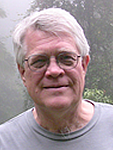
Robert Colwell is an international authority on concepts, patterns, measurement and simulation modelling of biodiversity, including the effects of global change on biogeographical patterns in the past and the future. His work with biogeographical theory and stochastic spatial models has stimulated controversy and new directions in the field, with links to systematics and conservation biology. Colwell is Distinguished Research Professor at the University of Connecticut and also holds appointments at the Universidade Federal de Goias, Brazil and in the Museum of Natural History at the University of Colorado, USA.
Finn Danielsen
Nordic Foundation for Development and Ecology (NORDECO), Denmark
Nordic Foundation for Development and Ecology (NORDECO), Denmark
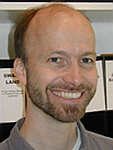
Finn is interested in innovative approaches for monitoring natural resources. Monitoring of natural resources by professional scientists is often costly and hard to sustain. Moreover, such monitoring can be logistically and technically difficult and is sometimes perceived to be irrelevant to resource managers and the local communities. Finn has co-developed and tested alternative monitoring approaches, where community members are directly involved in data collection and interpretation. When properly designed and carefully tailored to local issues, such participatory monitoring systems can provide valuable data, cost-effectively and sustainably, while simultaneously building capacity among local constituents and prompting practical and effective management interventions.
Roger Griffis
NOAA Fisheries Service, Maryland, USA
NOAA Fisheries Service, Maryland, USA
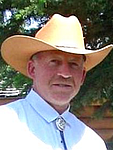
Roger is the Climate Change Coordinator for NOAAs National Marine Fisheries Service (NMFS). A marine ecologist by training, he is leading NMFS efforts to increase the production, delivery and use of climate-related information in fulfilling agency mandates for fisheries management, protected species recovery and habitat conservation. He is involved in a variety of activities including implementation of the NMFS Climate Science Strategy, conducting marine species climate vulnerability assessments, and improving tracking, early warning and response to climate-related changes in marine ecosystems.
Julia Blanchard
Institute of Marine and Antartic Research, University of Tasmania
Institute of Marine and Antartic Research, University of Tasmania

Julia is an Associate Professor in Ecology & Fisheries at the Institute of Marine and Antarctic Research. She holds honorary positions at Imperial College London and University of Sheffield in the UK where she was previously based. One of her core research areas is the development and testing of global ecosystem models and indicators under climate and human drivers of change. Julia also has wide ecological and interdisciplinary research interests including comparison of terrestrial and aquatic food webs and fisheries and agriculture sectors. She is co-leader of the multi-model ensemble component of the NERC UK Marine Ecosystems Research Programme, is contributing to the Inter SectoraI Impact Model Inter-comparison Project (ISI-MIP) and the UK Marine Climate Change Impacts Partnership and is an associate editor for Journal of Applied Ecology and Ecology and Evolution. Previously she was the coordinator of the ESF-funded 4 year research network SIZEMIC “Body Size and Ecosystem Dynamics: Integrating pure and applied approaches from terrestrial and aquatic ecology to support an ecosystems approach” and was a council member of the British Ecological Society.
